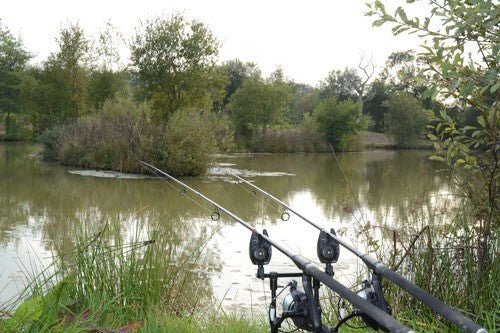
Wind and Wuthering: Understanding Weather Effects on Fishing
Share
I am sure we would all be a lot happier if carp fishing was governed by a fixed and predictable set of rules, a standard whereby we knew right from the start whether we had a chance of catching or not.
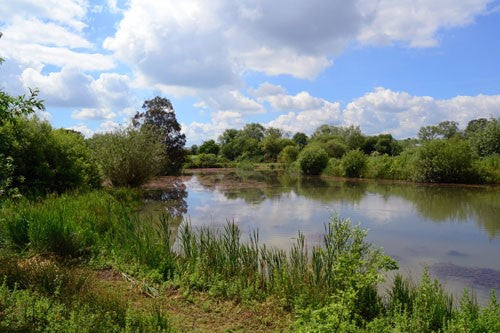
But carp fishing is not cut and dried, much as we’d like it to be, and even the seemingly solid ground rules that we tend to abide by are not set in stone. It is always a good idea to keep an open mind about your fishing so let’s continue this series in which I will ask you to challenge the accepted lore; to question some of the commonly held beliefs, assumptions and values that prevail in carp fishing today. First off I want to look at the weather and the influence it has on the fishing.
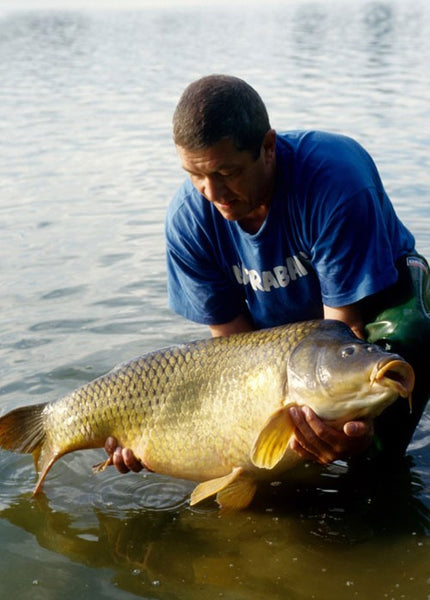
There is a piece of carp fishing dogma that has me chaffing at the bit whenever I hear it. It states that carp always follow the wind. Well sometimes they do but it would be wrong to believe that they always follow the wind. For instance, this one was caught during a horrendous overnight storm when a huge wind was blowing right over the top of my head towards the opposite bank. I could see the waves pounding on the far bank but in front of me, the surface was still and calm.
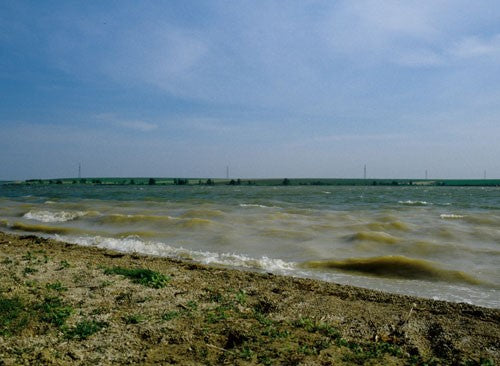
First of all, let's just examine the meaning of the phrase ‘to follow the wind’. It means that an angler has decided to fish either with the wind in his face or into an area where a strong wind is blowing. He reckons that the carp will ‘follow the wind’ but do you know the thinking behind his reasoning? Well in effect the angler is hoping that he will stand a better chance if he fishes facing the wind rather than with the wind at his back. There are three main reasons for thinking this:
The angler is hoping that the new or stronger wind will encourage the carp to move in the direction that the wind is blowing because it will cause the water to become much more coloured with churned up suspended solids and disturbed food items. In the dirty, food-enriched water the carp should be less cautious than in settled conditions when the water clarity is better and less food is stirred up from among the weed fronds and out of the silt lying on the lakebed. Carp are less aware of the possibility of danger in these turbulent conditions and they feed more confidently and aggressively.
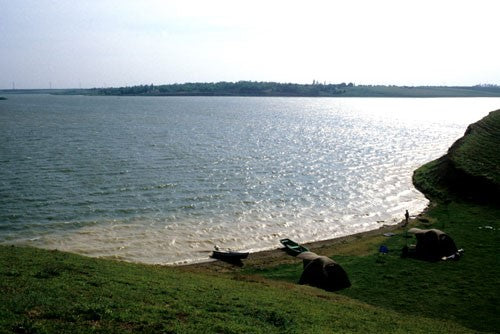
The extra turbulence from the breaking waves will greatly increase the amount of oxygen in the local area where the water is churned up. Carp get turned on in this oxygen-rich water and it gives them a real surge of energy. This is because the boosted water increases a carp's metabolic rate, making it feel livelier and more likely to feel like a bite to eat! If it blows strongly, say gale force or even stronger and the wave effect becomes even more pronounced the undertow created by the pounding waves can stretch back out into the lake by fifty or even sixty yards. Imagine all that dirty, highly charged lake water sitting right in front of you seething with carpy activity and just crying out for your hookbaits to splashdown in the middle of all those feeding carp.
Carp are creatures of instinct; they know what the effect of a strong wind beating on a shallow shoreline will be. Even if to start with there are no resident carp in the area towards which the wind is blowing, once it picks up in strength or shifts in the direction their instinct nudges them to follow the direction of the breeze, for they know what they will find when they get to the lee shore.
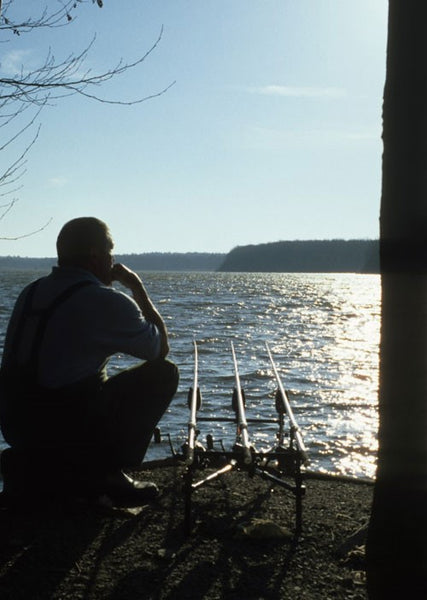
For the most part, the above theories hold, but not always! Sure, there are times when the carp certainly go mad on a big wind and you can catch lots of fish. On the other hand, I have fished plenty of sessions when I sat there with a full gale blowing straight towards me waiting in vain for fish that never arrived!
So why do carp sometimes ignore the influence of the wind when the theories outlined are perfectly valid? Indeed, you could be forgiven for thinking that these influences would be impossible to ignore. Well, one of the most likely explanations is angling pressure. You may think this is a bit far fetched but believe me, I have fished enough pressure waters to know that anglers play a major part in affecting the behaviour of carp, often to the extent that they will defiantly refuse to ignore the 'rules' and follow a new or strengthening wind. As carp fishing becomes ever more popular there are signs than on some of the most hard-fished lakes the fish have started to rebel against their instincts and ignore the influence of the wind.
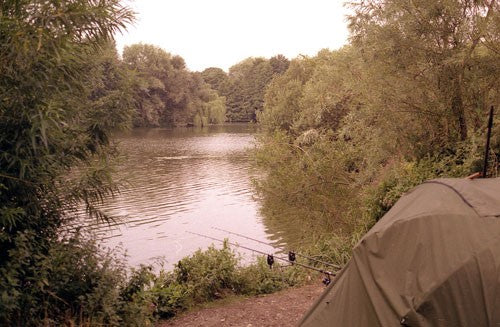
In 1988 when I joined Savay, a well-known syndicate lake near London, many of the members told me that the wind had become far less of a determining factor than was the case when the lake first opened to carp angling a decade earlier. Rod Hutchinson was one of the original members of Savay when it first opened in 1980 and anyone who has read Rod’s classic book ‘The Carp Strikes Back’ will know that he set great store in the changing weather conditions, moving swims with the slightest shift or increase in the wind and staying glued to the weather forecasts whether he was fishing at the lake or not.
Savay is a long fairly narrow lake that is often swept by strong winds and in the early days it was true that the fish would move in the direction of the wind, but by the time I joined things had changed. While it was true that some of the fish continued to follow the breeze, they did not do so in the sort of numbers as was the case in the lake’s early days.
I can recall arriving for my very first session in July 1988 and as I always do when I am session fishing I had a walk around to see if there were any fish showing. There was a warm summer wind blowing down the lake and it looked very encouraging. Surprisingly there was only one member rota fishing and he was right down at the far end of the lake where the strong, warm wind was pushing waves against his margin. Amazingly he had caught nothing in the three days he’d been in there, nor had he seen a fish. He was a new angler to the lake, like me, and was not yet aware of the fact that the Savay carp did not always follow the wind.
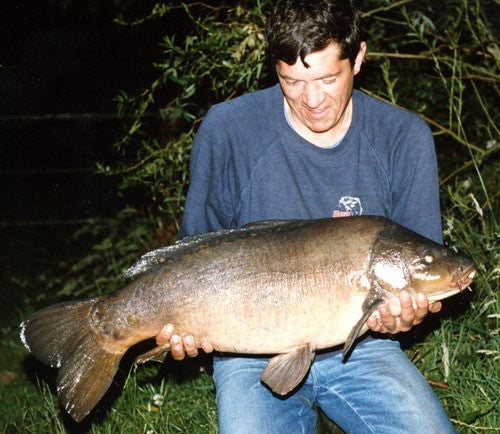
I was very tempted to go into his swim after he left, as I couldn’t believe that the carp were not in the area, but then I remembered what my friends on the rota had told me when I joined; that Savay carp were getting cautious about following the wind.
I walked back up towards the car park at the opposite end of the lake and stood overlooking a small area of the lake near the bailiff’s island. The wind was blowing strongly over my shoulders and down the lake, passing over an area of shallower water without causing so much as a ripple, but as I stood there looking out over the area a carp pushed its head out. I didn’t need any further persuasion and set up on the shallows. Even though the wind continued to blow hard down towards the far end of the lake the Savay carp resolutely refused to follow its influence and I caught two fish within 12 hours of setting up.
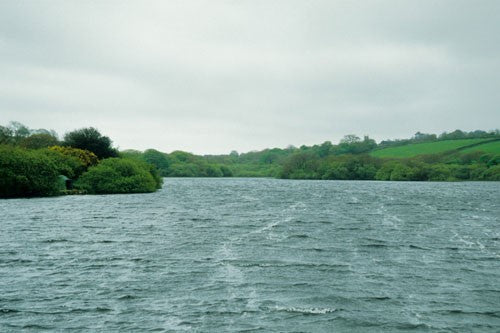
I have experienced this phenomenon on many other lakes as well. Here a big wind blows up the length of College Reservoir, one of my favourite UK lakes. The southern end is sheltered from the prevailing wind by tall trees and a steep valley. Two large islands lie at the southern end. The lake is strongly affected by the weather and the prevailing wind is a south-westerly. This blows up the lake away from the islands and you could be forgiven for thinking that the carp would follow a big wind towards the northern end of the lake. The majority of them prefer to hang around the sheltered southern end of the lake and only a few fish venture up with the wind.
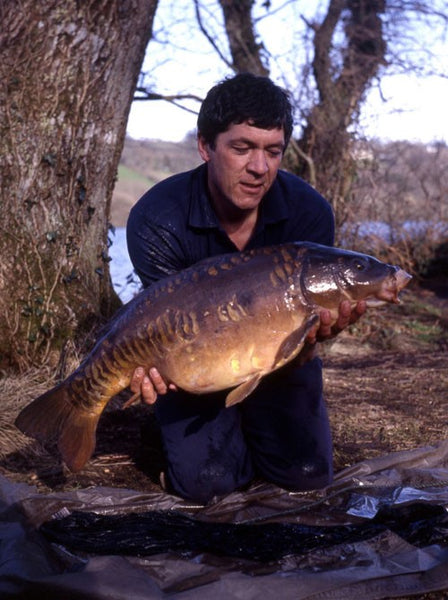
It took me several abortive trips to learn this! All my instincts cried out to me to get on the wind when it was blowing hard from the south or south-west, and yet my results were invariably disappointing. It was only when I decided to take a risk and stay in a swim at the southern end of the lake during a big southerly gale that I realised that the majority of College’s carp much preferred the safety afforded by the islands in the sheltered southern end of the lake.
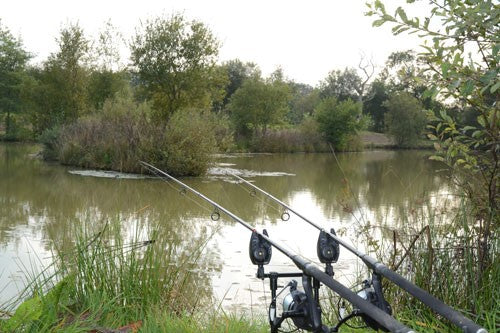
Carp that inhabit smaller lakes are less influenced by the strength and direction of the wind. The bigger the water the greater the influence of the wind on the lake’s surface. On big lakes of say 100-acres plus even a moderate breeze can push up quite big waves whereas on much smaller water of say a couple of hectares the same wind will have hardly any effect at all.
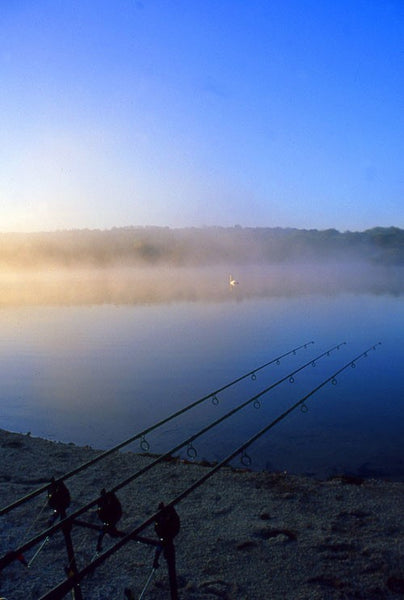
The depth of water can also influence how the wind can affect the lake and carp in shallow lakes are more likely to be pushed around on the wind than those that inhabit really deep lakes. One very good carp lake in my area is a flooded limestone quarry. It lies in a steep-sided valley whose slopes are heavily wooded with towering trees. The prevailing southwest wind sweeps down the valley where the steep sides accelerate the breeze so that the lake becomes whipped up quite quickly. Yet in all the years I have fished there I have never known the fish to be influenced by the wind. The reason for this is, I believe, because of the depth of the lake. In places, it drops down to over 20m and even the margins are 3-4m deep. It can blow all it likes but those almost vertical sloping sides will cushion any effect the wave action may have.
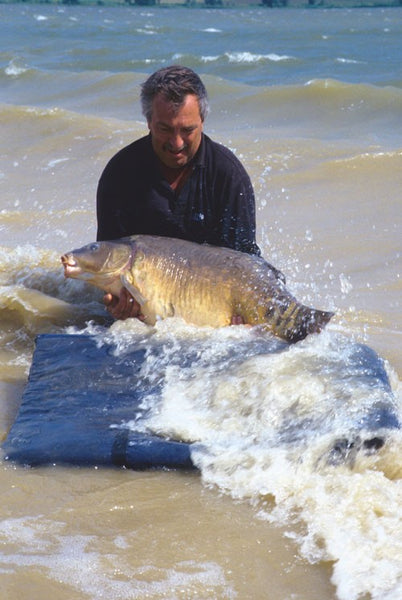
Conversely, a shallow slope onto which a fresh onshore wind is blowing is much more likely to attract carp. You can see the effect of a big onshore blow from the photos of Lake Sarulesti in Romania that I have included here (photos 2 & 3 ). The wind is strong to gale force south-easterly and it is blowing right into the bank. Waves are thrashing onto the bank and a large area of coloured water is being swept back out into the lake by the undertow. The disturbed water proved very attractive to the carp and I caught some lovely carp during the blow. As did my mate Philippe Lagabbe, and as you can see from the photo he found the job of putting fish back was a bit of an ordeal!
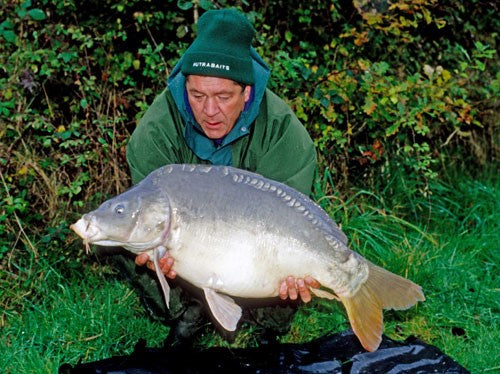
Water temperature will also be a major contributing factor, especially in winter when I have found that fish are often reluctant to move on any wind regardless of its direction. I realise that I am flying in the face of a great deal of accepted wisdom here but in winter the strength and direction of the wind do not figure in my choice of swim as I feel that there are more important factors to take into consideration.
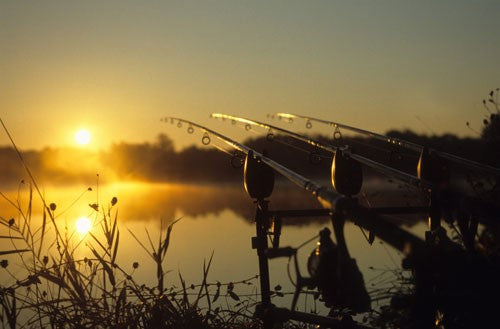
Atmospheric pressure can play a big part in determining the outcome of a fishing session…Which, brings me to another oft-quoted piece of doggerel that I often see or hear quoted, namely that carp feed best in low-pressure conditions. OK, sometimes this is true and it is significantly more likely in the hotter months when a prolonged period of hot weather and high pressure can create conditions that are not at all conducive to good fishing. However, to say that low pressure always equals good fishing is far too sweeping a statement. In my experience, I have caught just as many fish when atmospheric pressure has been sky high with full-on sunshine as I have when the bottom seems to have fallen out of the barometer!
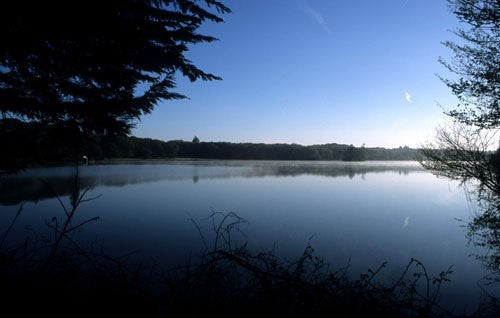
I find it incredible that many anglers won’t even go fishing when the pressure is high! Why not! Why has dogma acquired such a position of almost reverential proportions over the years when it is not necessarily the case? Yes, I have caught well on wet and windy days, but I have also caught equally well when it’s been calm and settled. In fact, during the coldest months of the year, I prefer clear skies and light winds, as over the many years that I have been carp fishing I have found these conditions to be more productive.
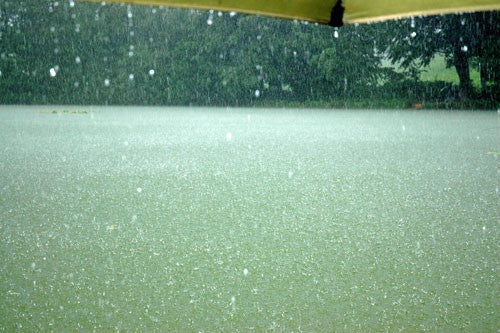
As far as most carp fishermen are concerned, low pressure usually brings with it strong winds accompanied by rain, whereas high pressure is generally seen as bringing calm weather with little wind and dry conditions. So how about the violent summer storms that can spring up out of nowhere, bringing either strong winds of torrential rain? These are always associated with cyclonic (high pressure) conditions and they usually occur during periods of hot settled weather. I have fished in these summer storms scores of times and my experience carp invariably come on the feed during them.
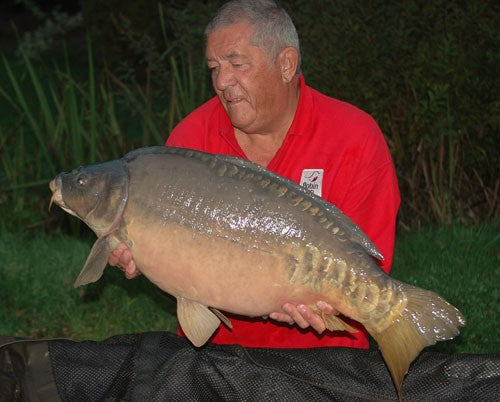
While I accept that a big blow with heavy rain can stir the fish up and there are times when the fish just switch on with the change in the weather. Look at the Blogs I wrote about the Secret Garden for a prime example.
https://www.haiths.com/haiths-baits/listen-do-you-wanna-know-a-secret-part-1/
https://www.haiths.com/haiths-baits/listen-do-you-wanna-know-a-secret-part-2/
While the sun beamed down we had five fish in nine days. Once the weather changed from to bucketing down and cold we had twenty-three fish in four days.
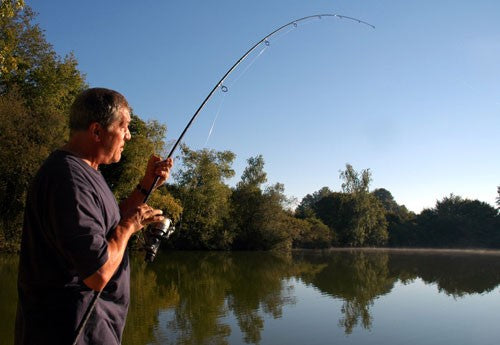
I am always reluctant to accept blindly the carp fishing lore without questioning it. Consider this: Do carp get caught because it’s wet and windy or in spite of it? Am I the only guy who prefers it dry and warm? If I consistently failed to catch carp in high-pressure conditions I could perhaps find some justification in the belief that carp feed best in unsettled weather, but the fact is I catch carp in all kinds of weather. Look at the flat calm surface in front of me as I am playing a fish.
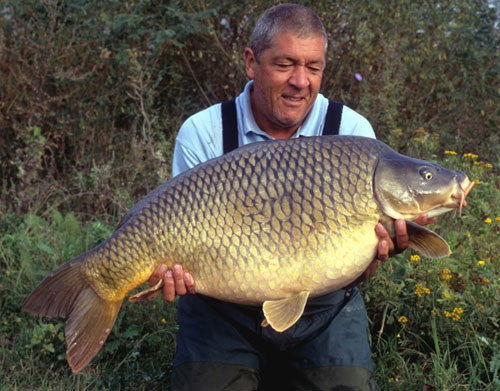
So please don’t be put off from going fishing because of high pressure. If you are stuck in the groove of the nine-to-five merry go round you’ll have no choice anyway but don’t be downhearted if the weatherman forecasts high pressure and settled weather for your all-to- short weekend session. It’s not set in stone that it has to be low pressure to catch. I could give you countless examples of when I have caught loads of good fish in what most people consider to be unfavourable conditions so my advice is, don’t listen to the weatherman in the first place and just go out and do it!
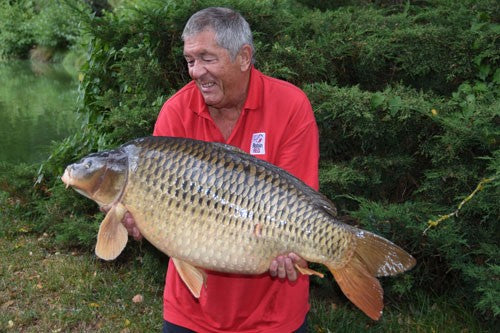
Keep Sane, Safe and Well in these awful times.
Written by Ken Townley
